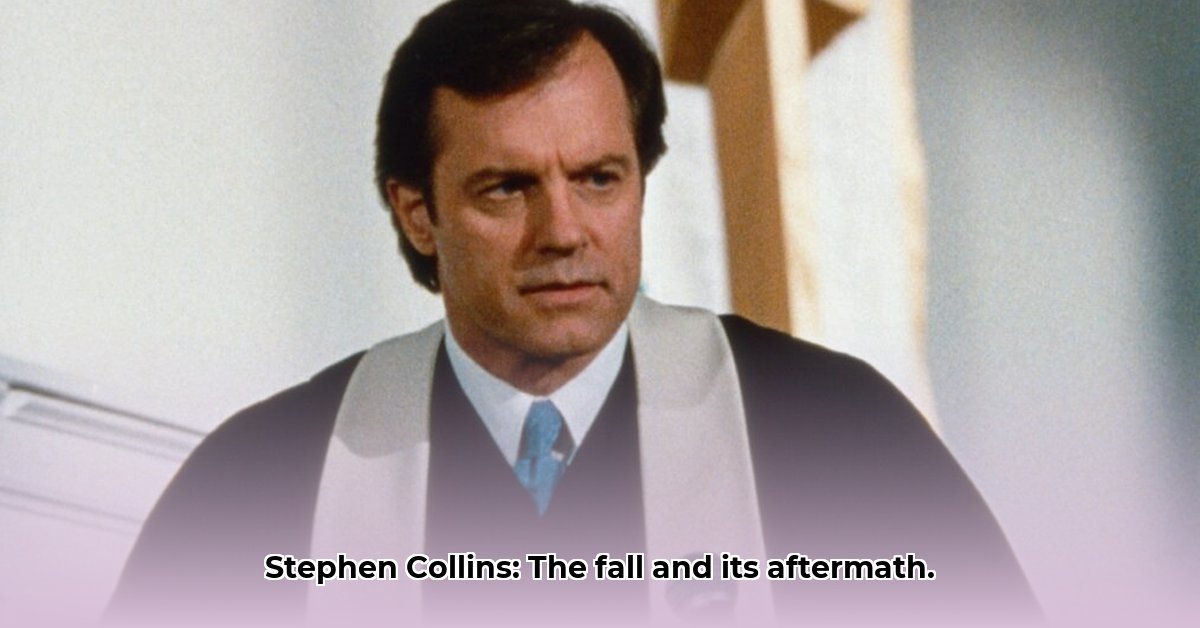
The Fall of a Television Icon
Stephen Collins, the beloved patriarch of the long-running television series 7th Heaven, enjoyed a squeaky-clean public image for years. However, in 2014, this carefully constructed persona shattered with explosive allegations of child sexual abuse. The revelation sent shockwaves through Hollywood and beyond, forcing a difficult national conversation about the concealed darkness that can lurk beneath seemingly perfect facades. This wasn't simply a celebrity scandal; it was a stark reminder of the devastating impact of child sexual abuse and the systemic failures that allow it to occur. How could someone so seemingly wholesome commit such horrific acts? This question, and the answers it compels us to seek, form the core of this analysis. For more on Collins's financial situation after the scandal, see his net worth.
The Bombshell and its Devastating Aftermath
The initial reports detailing Collins's actions—actions directly contradicting the image he meticulously crafted—spread like wildfire. The media's response was immediate and intense, with news outlets scrambling for information and the public reacting with an overwhelming mix of shock, anger, and disbelief. Collins's career, once thriving, plummeted. His reputation, formerly untarnished, became irrevocably damaged. The repercussions extended far beyond his personal life, igniting critical discussions about the complexities of child abuse, the challenges faced by victims in coming forward, and the role of the media in responsibly reporting such sensitive information.
How did the media's handling of the scandal influence public opinion? Did a focus on sensationalism overshadow the vital imperative of supporting victims? These questions remain crucial elements to analyze in understanding the scandal's lasting impact.
Unpacking the Crisis: Beyond Individual Accountability
The Stephen Collins scandal exposed systemic vulnerabilities, highlighting the extraordinary challenges faced by victims of child sexual abuse. Coming forward often requires immense courage, as victims navigate the complex, and frequently emotionally draining, legal process. Shame, fear, and the pervasive worry about credibility add to the already significant burdens. The public response, too, was often complex and sometimes contradictory, oscillating between outrage and disbelief, with the inherent danger of further victimization through public speculation and commentary.
What additional support systems are needed for child abuse victims to ensure their safety and well-being are paramount? How can we create a societal atmosphere where victims feel empowered to report abuse without the added burden of distrust and fear of judgment?
Media's Role: A Double-Edged Sword
The media played a multifaceted, and sometimes controversial, role in shaping public perception. While some news organizations prioritized responsible reporting, focusing on the victims’ perspectives and respecting their privacy, others sensationalized the events, potentially causing further trauma. Public opinion was deeply divided. While some demanded swift justice, others called for compassion and the possibility of redemption. This division reflects the complex and often conflicting societal attitudes towards child abuse, justice, and the potential for rehabilitation.
Did the media's response effectively balance the need for public awareness with the protection of victims' privacy and well-being, or did sensationalism inadvertently overshadow the need for empathy and support?
Lasting Impacts and Unlearned Lessons
The consequences of the Stephen Collins scandal continue to reverberate. For Collins, the repercussions were career-ending and deeply personal. His story stands as a stark cautionary tale. However, the scandal's implications reach far beyond him. It highlighted critical shortcomings in child protection systems, emphasizing the need for enhanced background checks for those working with children, improved reporting mechanisms, and more comprehensive support services for victims. The scandal also underscored the crucial need to create a culture of trust and understanding where victims feel empowered to come forward without fear of disbelief or judgment.
How can we learn from this tragedy and implement systemic changes to prevent similar incidents from occurring in the future? What preventative measures can be put in place to improve accountability and ensure more effective protection of vulnerable children?
The Impact: A Summary
| Stakeholder Group | Immediate Effects | Long-Term Outcomes |
|---|---|---|
| Stephen Collins | Career ruin, public condemnation, potential legal issues | Damaged reputation, ongoing struggle for rehabilitation |
| Victims of Abuse | Emotional distress, difficulties trusting authority figures | Lifelong psychological impact, need for sustained support |
| Entertainment Industry | Increased scrutiny of background checks, review of casting practices | Stronger child protection policies, ethical guidelines |
| The Public | Raised awareness of child sexual abuse, divided public opinion | Ongoing conversations about prevention and victim support |
The Stephen Collins case remains a poignant example of the devastating effects of child sexual abuse and the ongoing need to support survivors while holding perpetrators accountable. This story continues to evolve, emphasizing the necessity for sustained efforts toward justice and healing. Further examination of the long-term impact on victims, the entertainment industry, and society as a whole is crucial for preventing future tragedies.